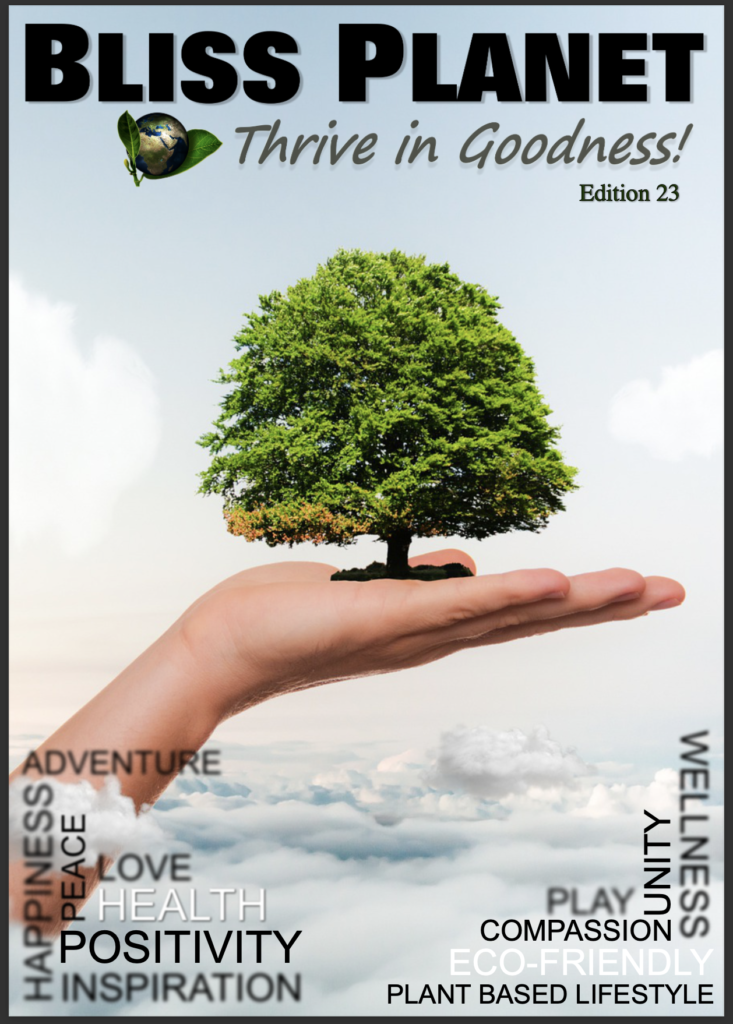Stress is a response to experience that creates mental, spiritual or physical tension.
Bliss is the opposite. It is a response that creates relaxation, acceptance and peace.
Some stress is a natural part of life. For example, the loss of a loved one or job, or appearance of serious disease can create stress.
These life events often create sadness, grief, anxiety and fear, emotions that are associated with higher levels of tension.
While we cannot control life events that create tragedy or disappointments, we can control how we choose to respond and process them.
Have you ever had a tragedy occur and discovered that despite the pain or loss, somewhere deep inside there was a calm or centeredness? Did you experience a sense of faith in a higher power and the knowledge that things will be okay?
This is bliss. It is accessible even in moments of tragedy. It allows us to experience the glorious spectrum of human emotions fully without losing our peace.
Yet, we often convince ourselves, that bliss can only appear after we have healed from grief or after a challenge is over.
Other times, stress is self-created, the result of our own thought patterns rather than external circumstances.
For instance, ruminating on the “what ifs” can take us away from the present moment, and create anxieties about events that have not even occurred yet.
As you go through your week, ask yourself, how many times do your thoughts and beliefs take you away from that centered feeling? How often are you choosing stress instead of bliss?
You can actively nourish bliss with these strategies.
Keep it simple. Be in the present moment.
Bliss does not dwell in the past or the future but in the current moment. Each time we over analyze events or interactions, we distance ourselves from the present moment.
Example
Sarah and Richard were dating for two years. Sarah turned to Richard and said, “I really love you and can see such beautiful things for us when I close my eyes.”
Richard wondered, “What if she is really saying that she wants to get married. I am not ready for marriage but if I do not ask her soon, maybe she will find someone else because that is what my last girlfriend did.”
Richard says, “Uh huh” and changes the subject.
Thus, he misses the gift of bliss that Sarah expressed so positively and openly. Sarah feels unseen and unheard so hesitates next time to share so openly with Richard. Thus, tension arises in the relationship.
Imagine the difference if Richard had stayed in the present moment, connected with the bliss in Sarah’s comment, and responded with, “Wow, I am so glad you feel so wonderful about us! I do too.”
Let go of emotional baggage.
Many of us subconsciously expect others to treat us in the negative ways that people in our past have treated us. So, we project an expectation of those behaviors and motives onto new people we meet.
Each time we anticipate that others will respond in negative ways, our bodies go into a subtle flight or fight response-we experience stress and set the stage for disharmony.
The ancient Taoists describe negative projection as an energetic transgression, the projection of negative energy onto someone who is in a positive state.
When we project negative thoughts, it not only harms our own psyches and bodies by creating stress, but also harms the person to whom we are projecting.
Thus, bliss is a gift of seeing and accepting others and of being seen and accepted. Think about that. Who does not light up when they feel fully seen and validated? Thus, we always have the choice to give the gift of bliss to others or to subdue it by failing to fully acknowledge and validate others.
Meditate on and visualize bliss
Create a vision of what bliss represents to you. What does it look like in your relationships? What does it look like in your career? What does it look like in terms of your spiritual and physical health practices?
Play!
Bliss resides in play. Children intuitively know this. Yet as adults, we convince ourselves that our responsibilities, our mental processing, our busy schedules are more important than play.
Yet, scheduling a break from serious thoughts and activities, and nourishing the inner child is just as important and as productive as “working” and “being an adult.”
If you have not played for awhile, try:
Walking in nature and seeing nature through your inner child-see God’s angels and sprites under every tree leaf. Feel the breezes as gifts from God.
Put on music with a contagious beat and dance yourself silly.
Listen to a favorite comedic routine-Bill Cosby’s old albums about growing up with his brother Russell are a hilariously wonderful journey into the world of childhood mindsets.
If you are in a romantic relationship, take a break from serious conversation, and play. Get some flavored body paint and finger paint each other or go visit an amusement park and cuddle in the ferris wheel. They key is to consciously evoke the bliss of play and consciously table serious discussions or the “work” of relationships.
De-clutter your life.
Take time to re-evaluate the relationships in your life. Do they inspire play and simplicity as well as profound thoughts and growth? Are they filled with positive communication, active listening and interactions that make you feel seen, heard and cherished? Or are you struggling to be seen and heard for who you are?
Actively choose to welcome bliss by stepping away from those things that are not inspiring bliss.
Evaluate your relationships to explore how much emotional clutter comes with them-sometimes we can engage new friends who appear simple and clutter-free, but when examined more closely, they may have chaotic relationships in other areas of their lives which makes it hard for them to let go and embrace bliss for a part of them is always engaged in the thought patterns and spirit movement associated with stress.
People of higher vibration are often surrounded by others who also are clutter-free. So give yourself the gift of aligning with such individuals to access greater states of bliss.





